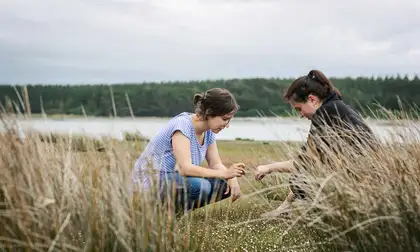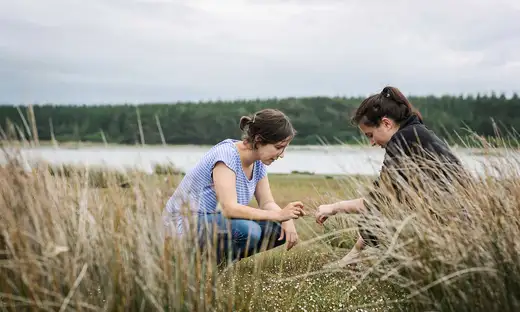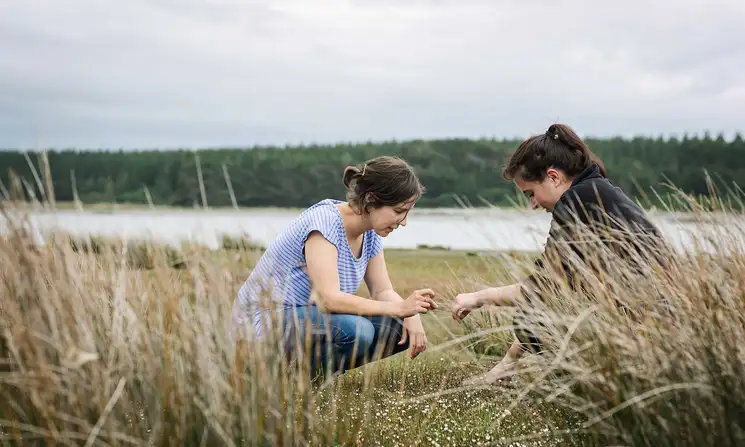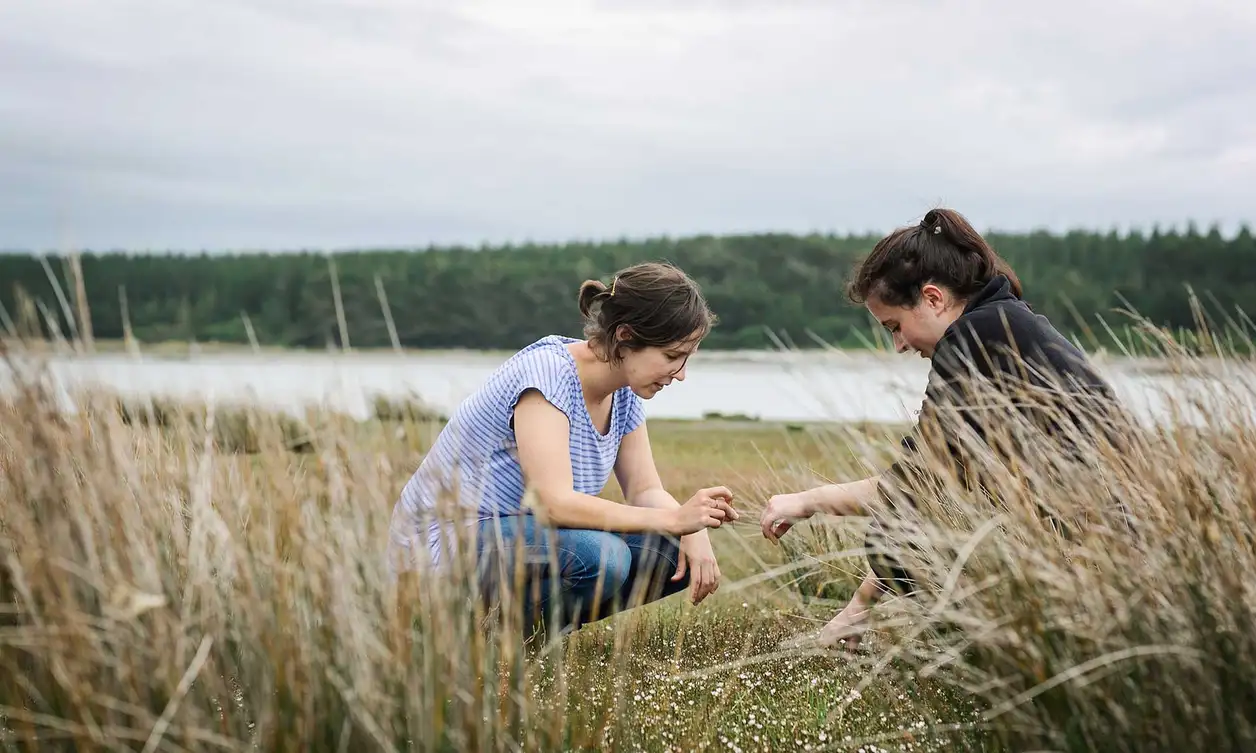On this page
- International collaborations and impact
- Conservation support for endangered birds
- Native tree plantings
- Successful Bioblitz event
- Sustainable agriculture
- Progress in Genetic Research on Kauri Dieback
- A new alpine cave wētā discovered
- Research to save endangered birds
- Scholarship to protect native kauri trees
- Related content
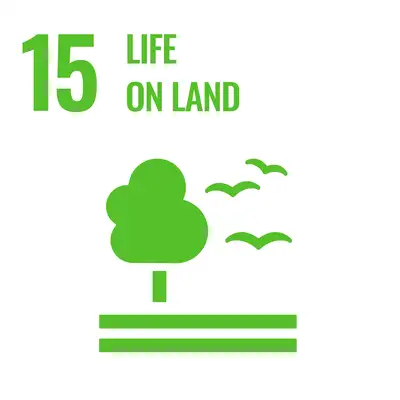
International collaborations and impact
Over half, 57%, of Massey University’s 326 SDG15 publications between 2019 and 2023 resulted from international collaborations (Scopus database extracted using SciVal in October 2024).
Our number of SDG15 publications has increased since 2022, with 54 publications in 2020, increasing to 69 in 2021, 70 in 2022 and 73 in 2023.
The publications had over 4,600 citations, with a signification emphasis on research related to endangered species, conservation management and biodiversity.
Conservation support for endangered birds
Massey’s Wildbase remains dedicated to supporting several endangered bird conservation initiatives in Aotearoa New Zealand. This support includes the:
- Kākāpō Recovery Programme – IUCN red list status: Critically endangered
- Shore Plover Recovery Programme – IUCN red list status: Endangered
- Operation Nest Egg (focusing on kiwi chicks) – IUCN red list status: Vulnerable
Wildbase's mission is to provide veterinary and scientific services in support of New Zealand conservation. These services include monitoring and protecting the health and welfare of our most endangered species, including all IUCN Red Listed species in New Zealand.
Bird, reptile and bat species treated at the Wildbase Hospital include the following species, many of which are on the IUCN red list.
Nationally critical birds
Tūturuatu (shore plover), kākāpō, matuku-hūrepo (Australasian bitterns), Salvin’s and Antipodean albatross, orange fronted kakariki, and kotuku (white herons).
Nationally endangered birds
Hoiho (yellow-eyed penguins), rowi (Okarito brown kiwi), kea, and a masked booby.
Nationally endangered reptiles
Otago skinks, rough geckos, grand skinks and internationally endangered green sea turtles.
Nationally vulnerable reptiles
Starred geckos, Lewis Pass geckos, scree skinks and the internationally vulnerable olive Ridley sea turtles
Nationally critical bats
Long-tail bats
Nationally vulnerable bats
Short-tail bats
Massey researchers helped with the first Chatham Island black robin translocation in 20 years. The birds are returning from the brink of extinction through ongoing conservation work.
Locally extinct Toutouwai, North Island robins, were also reintroduced to the Turitea Reserve, bordering the Manawatū campus. This achievement was thanks to a collective community effort, including several Massey University researchers.
Wildbase Strategy Policy (PDF, 699 KB)
Native tree plantings
Recently, a Plant a Native, Save a Native event run by the Sustainability Office and the Massey University Student Association planted 500 native trees on campus.
Native plants also usually form part of the landscaping around new buildings.
- Planting native kowhai trees outside the new vet building marked the arrival of Matariki, the Māori new year. Kowhai trees are an important seasonal nectar food source for native birds such as tūī, korimako, kākā, and kereru.
- The landscaping of the new Marae with native species is part of the outdoor learning space.
Successful Bioblitz event
In March 2023, more than 200 community members participated in our first BioBlitz event held at Fernhill Escarpment, a significant ecological bush area adjacent to the Ōtehā Auckland campus. Participants explored the area, which is home to at least 158 species, contributing to our knowledge of local biodiversity.
The biodiversity-focused day featured guided walks to identify plant and animal species, along with informative talks on key conservation issues led by experts in the field.
Sustainable agriculture
Whenua Haumanu field day
Strong local and national interest in regenerative farming saw close to 200 people attend an on-farm field day in November 2023 showcasing Massey’s Whenua Haumanu programme.
Plantain research
Recent research by Massey University, part of the DairyNZ-led Plantain programme, found that feeding plantain to cows can reduce nitrogen leaching by 20-60%. This promising discovery highlights the potential for sustainable farming practices that benefit both the environment and agriculture.
Environmental outcomes event hosted at Fieldays
Massey once again partnered with Fieldays, including hosting an In Conversation event on improving environmental outcomes on farming.
The university has had a site at the iconic agricultural event for nearly 50 years and has been a partner since 2018.
Pastoral Farming study focuses on Regenerative farming
The Whenua Haumanu programme led by Massey, with research partners AgResearch, Lincoln University and Dairy Trust Taranaki, is the most comprehensive study of pastoral farming systems ever undertaken in Aotearoa New Zealand. It will include a focus on regenerative farming practices.
Progress in Genetic Research on Kauri Dieback
Massey researchers led a team of scientists who have constructed a complete genome sequence of the pathogen that causes kauri dieback.
Identifying key genes that cause the disease is an important tool in the battle against kauri dieback.
A new alpine cave wētā discovered
Massey researchers have identified 6 new species and 3 new subspecies of alpine cave wētā from the southern regions of the South Island. The wētā survive in landscapes covered by snow for more than 6 months a year.
Research to save endangered birds
New research aims to find safe and effective drugs for treating coccidiosis, a common parasitic disease that significantly threatens captive-reared kiwi.
Massey is also part of a collaborative research initiative that developed a test to identify a gyrovirus responsible for a deadly respiratory illness in critically endangered hoiho penguin chicks. These efforts aim to enhance the health and survival of these vulnerable species.
Scholarship to protect native kauri trees
A Massey student was awarded a Tiakina Kauri scholarship through a partnership with the Department of Conservation. The research focuses on protecting New Zealand’s native kauri trees from extinction.
